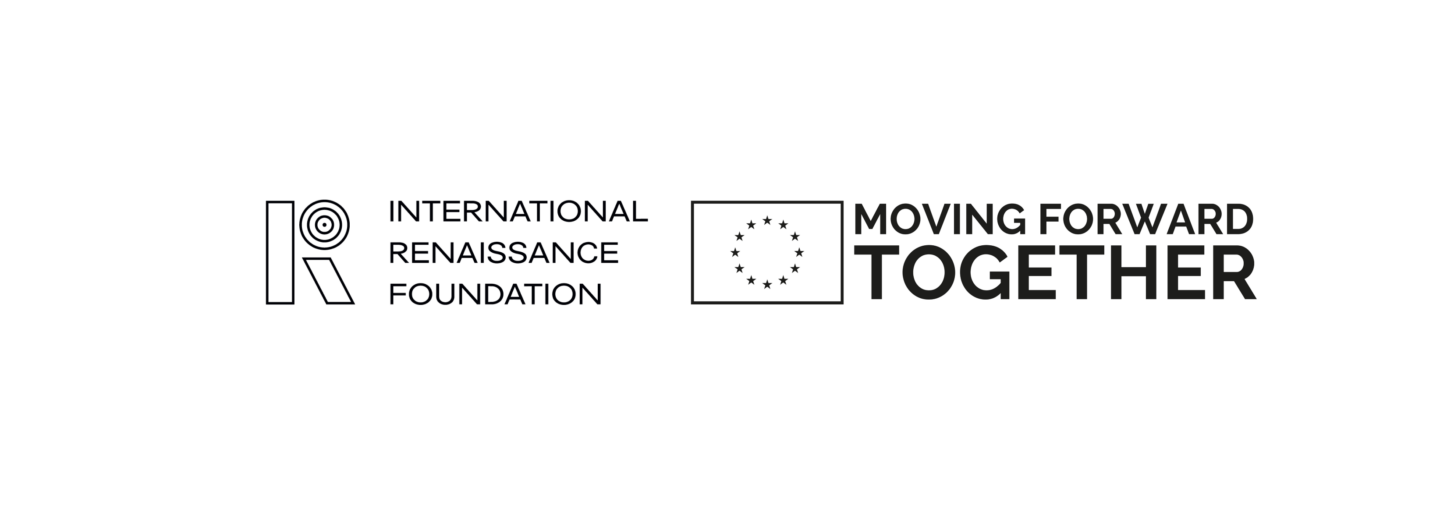The Russians are once again striking Sumy Oblast. Hospitals, power lines, gas pipelines, and people’s homes are coming under fire. Since the start of the full-scale war, the region, which borders Russia, has been suffering from enemy drones, missiles and artillery. Now, with Ukrainian forces having crossed the border into the Kursk Oblast and continuing to advance, the situation along the border has intensified. Movement in the 30-kilometer zone is restricted, and people are being evacuated daily.
Just a few days ago, Yurii, a 50-year-old farmer from the border area of Sumy Oblast, had to finally leave his home and the farm he had been building over his lifetime. He used to have more than 30 cows, bulls and calves. Most of them were killed when two guided aerial bombs hit his yard. In the photo, he’s dealing with the aftermath of the strike and evacuating the surviving livestock.
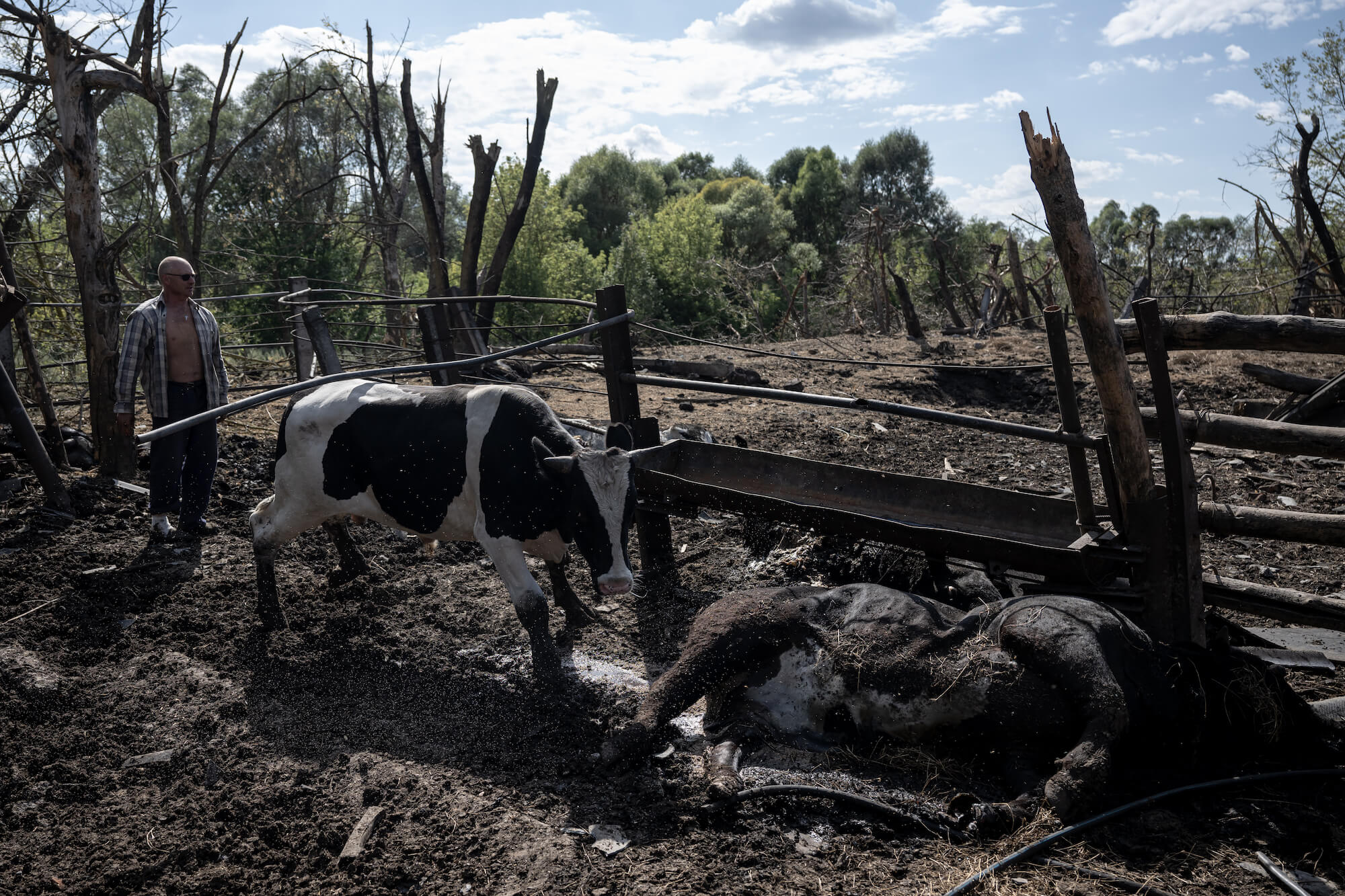
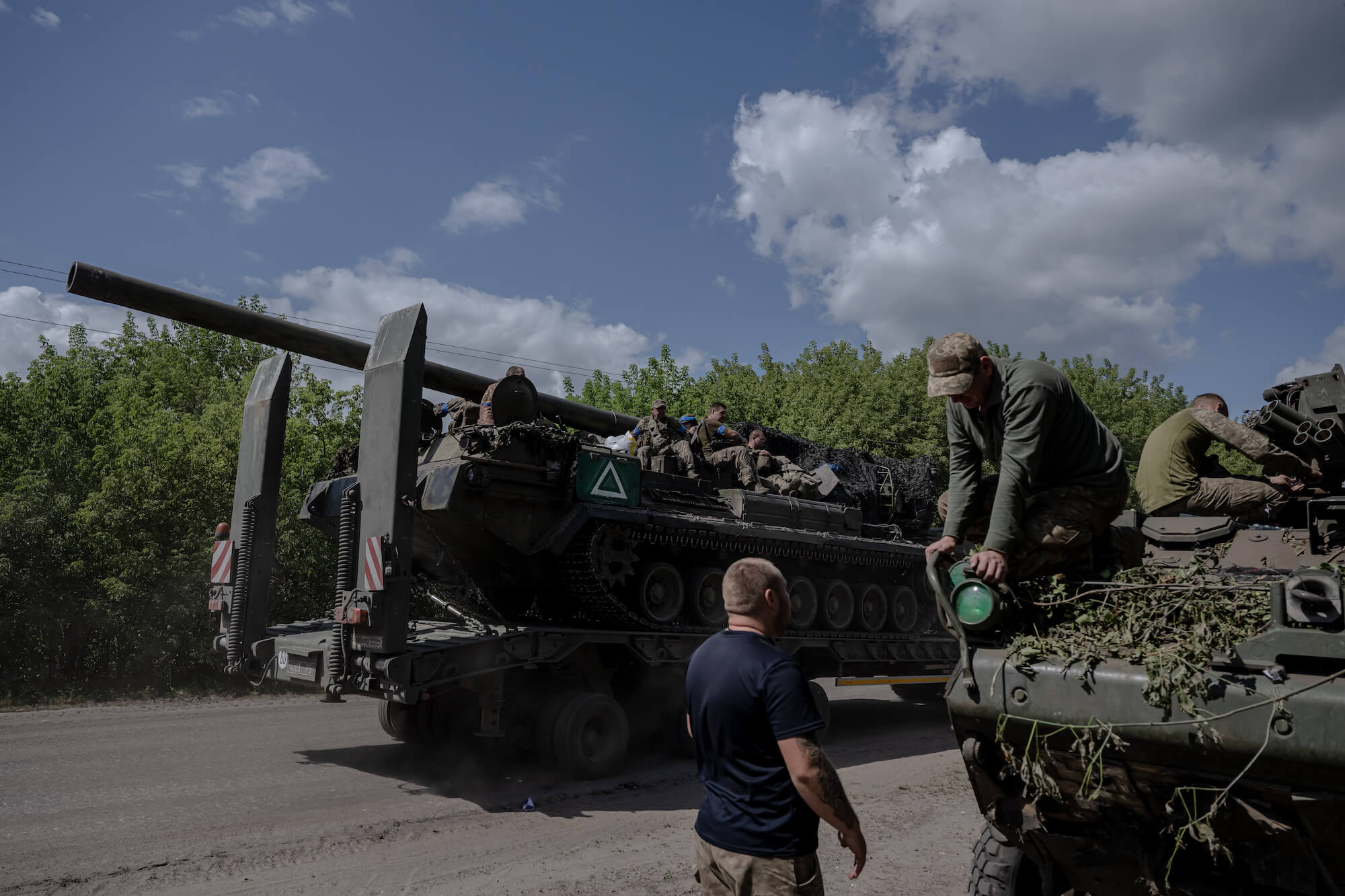
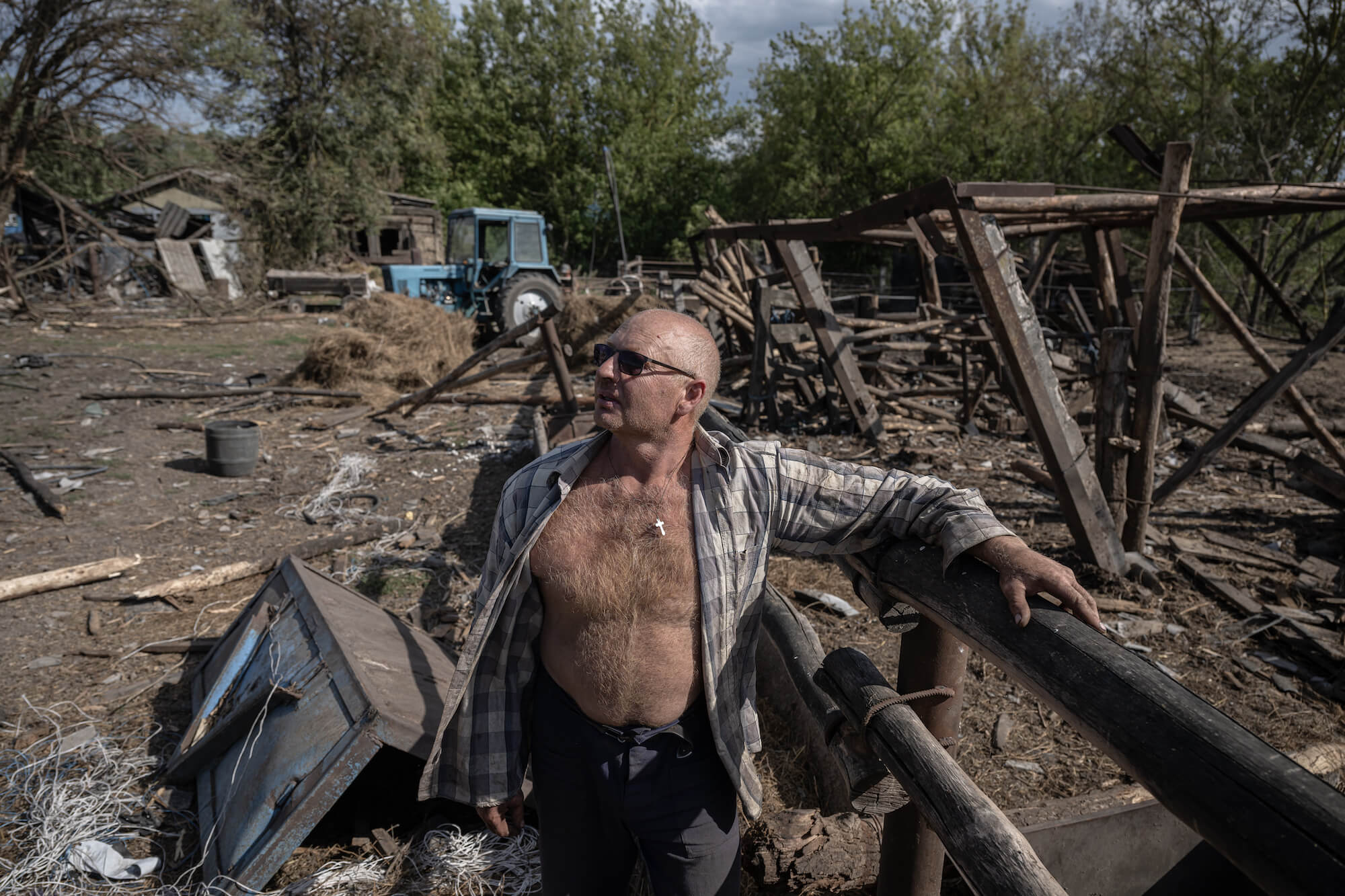
“I had a cellar, a kitchen, a workshop, and a barn. All of it is gone now. I used to raise bulls, harvest feed, care for the cattle, and repair equipment. My wife would take the milk to the market in Sumy and sell it.
So many people in the village were blown up. I was cutting hay, always just one step away from danger. Once, I was harvesting the hay and ended up pulling out a shell from my threshing machine. A week hadn’t passed before one of my cows was blown up by a mine. I barely managed to pull another one out of a minefield. Before that, a shepherd was killed by an explosion—I was the one who evacuated his body. This month, it was my colleague, the last resident of Zhuravka village. We were getting ready to cut hay: I came in from one side, and he came in from the other and hit an anti-tank mine. This is our kind of ‘romance.’
I was somewhat lucky: I mowed, baled the hay, brought it back, and it didn’t even burn after the airstrikes. But am I really lucky? There’s no one left to feed it to,” the farmer says.
He mentions that he has lost a huge amount of money but understands that it’s not worth expecting compensation from the state anytime soon. As for what’s next, “It’s up to those who are drowning to save themselves.”
“Right now, we’re staying with relatives. There’s no way to work here, and we’re eating what’s left from the humanitarian aid we received earlier. We’re trying to fix what wasn’t destroyed—first thing, I’m buying glass windows and doors for the damaged tractors. As for the future, well, let’s take it one day at a time.”
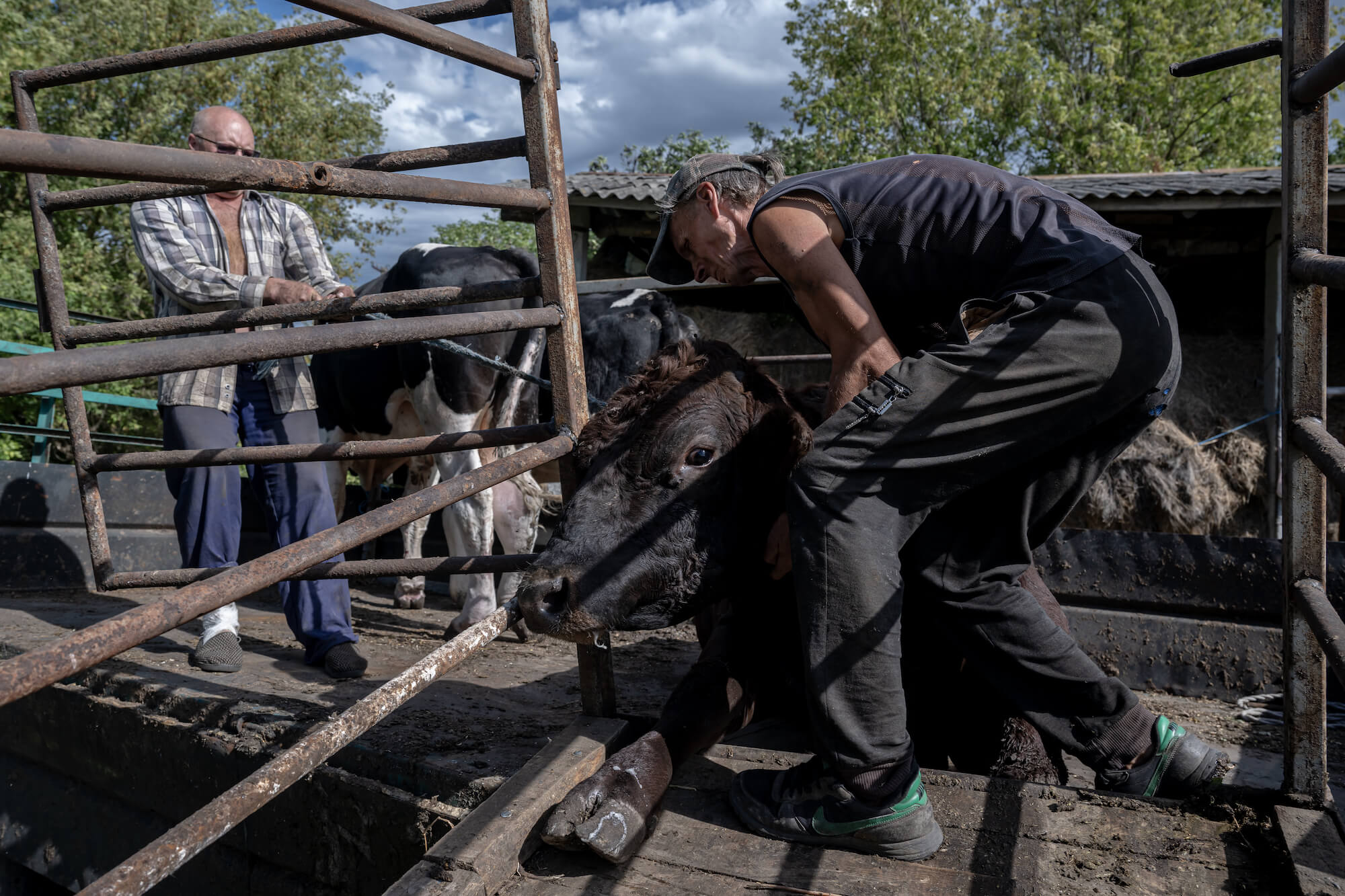
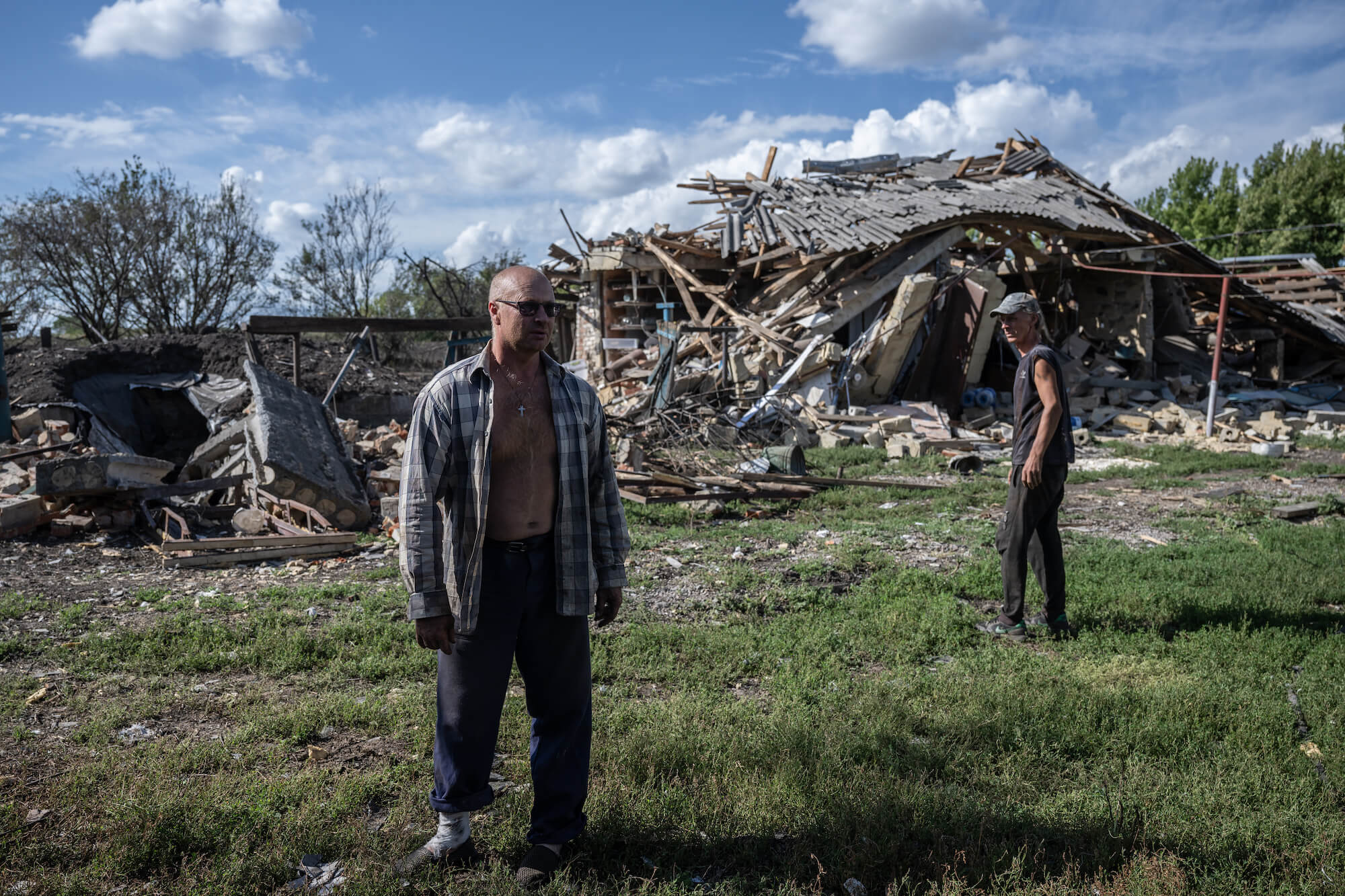
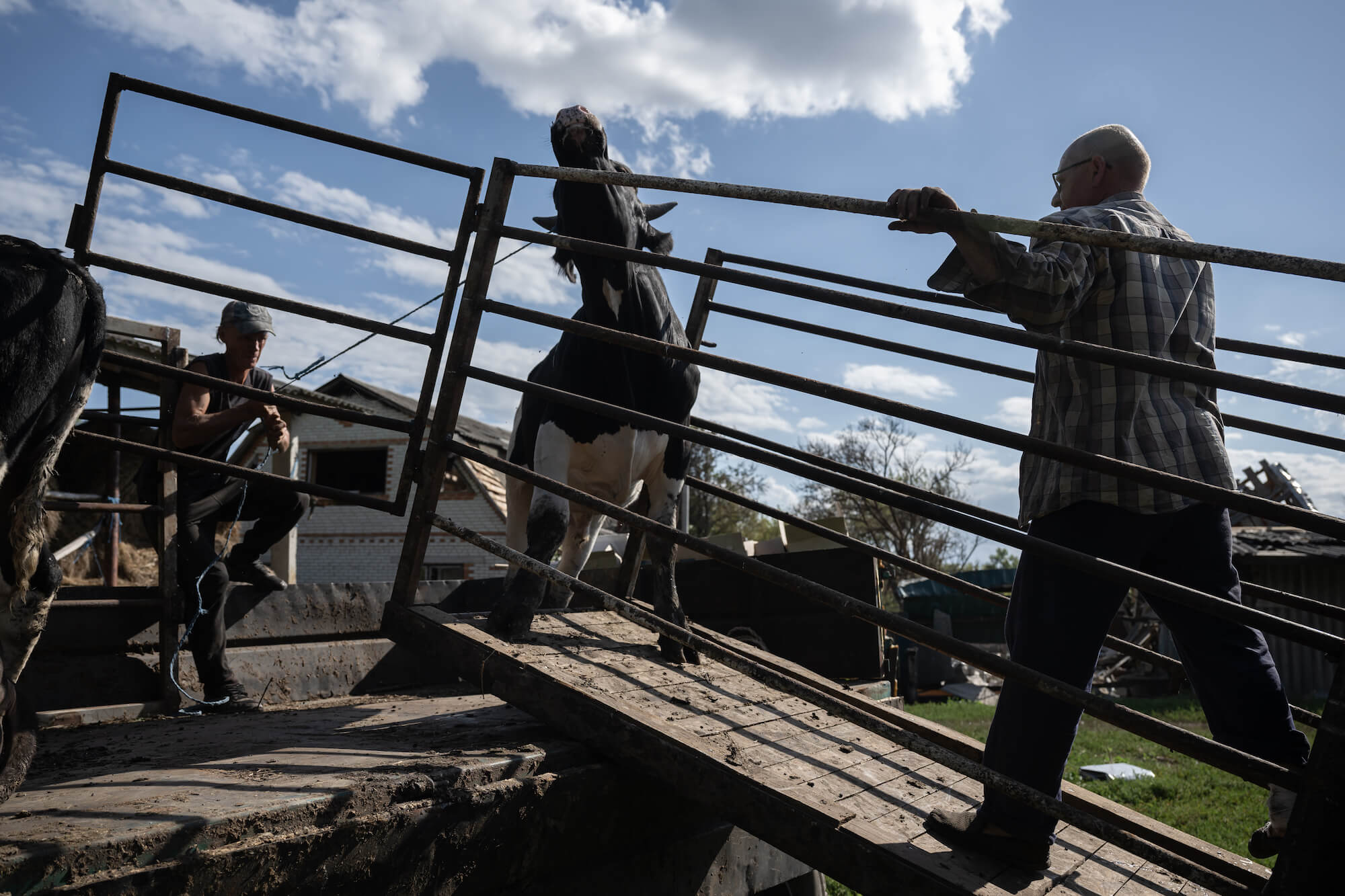
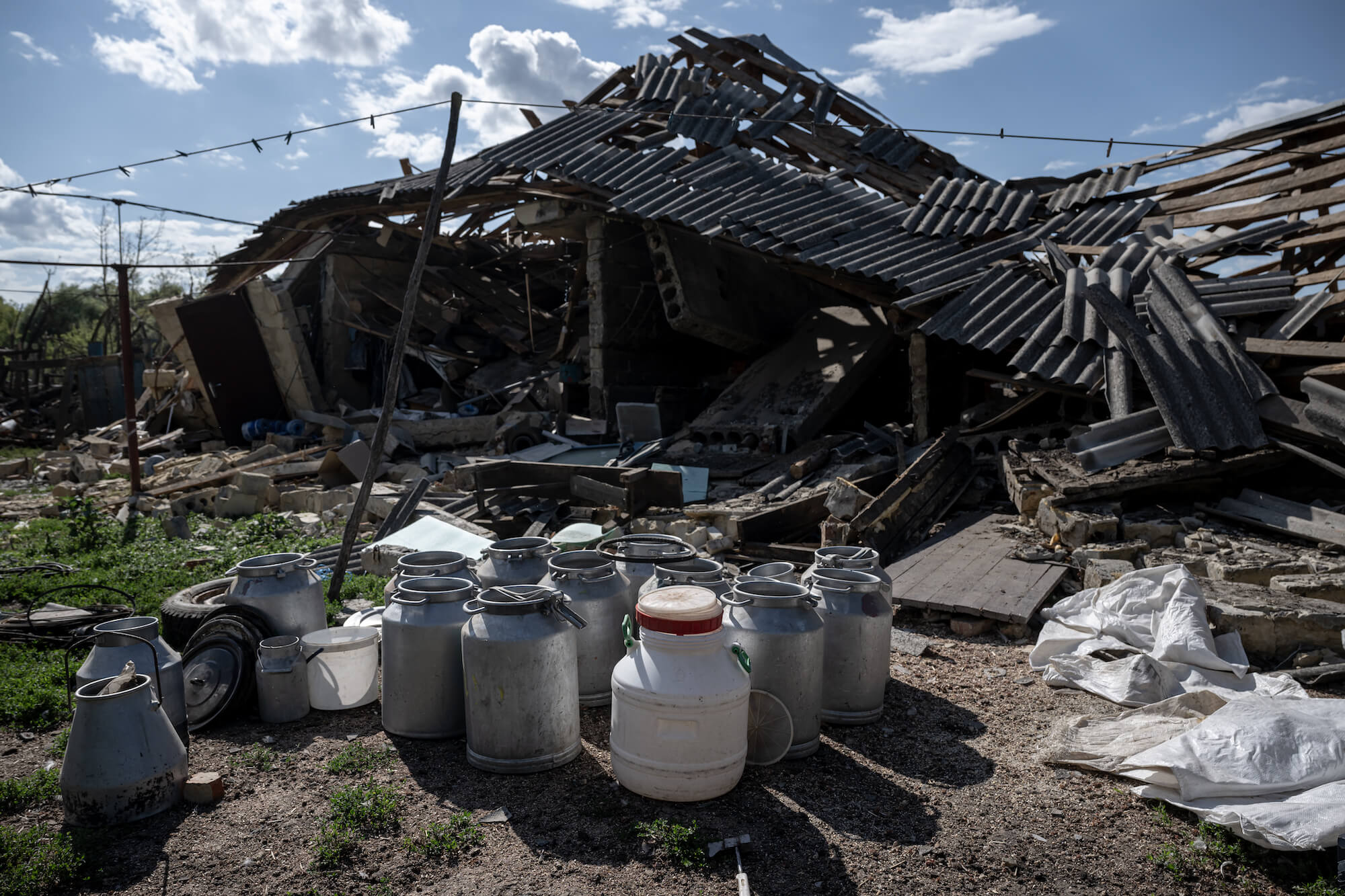
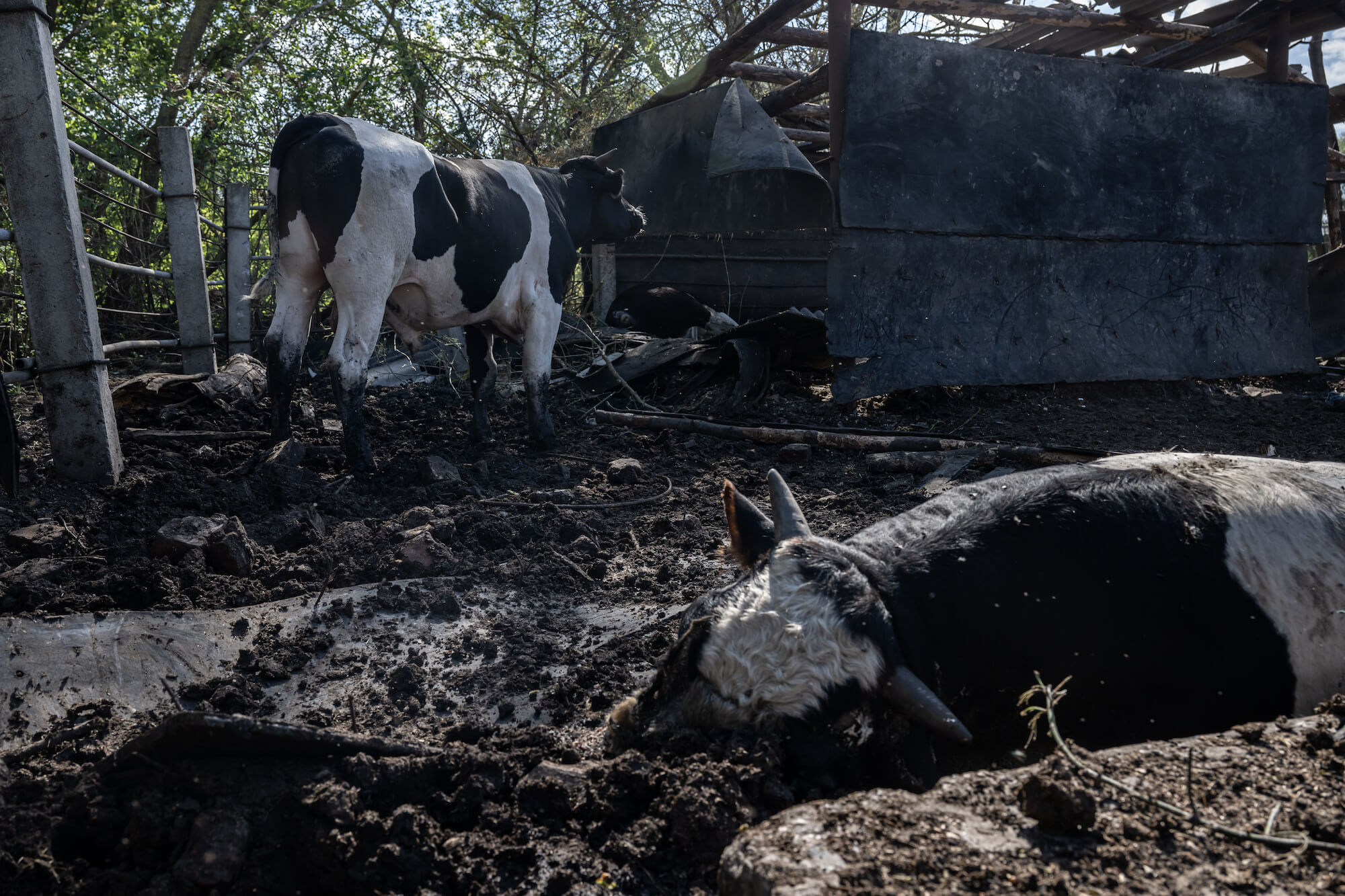
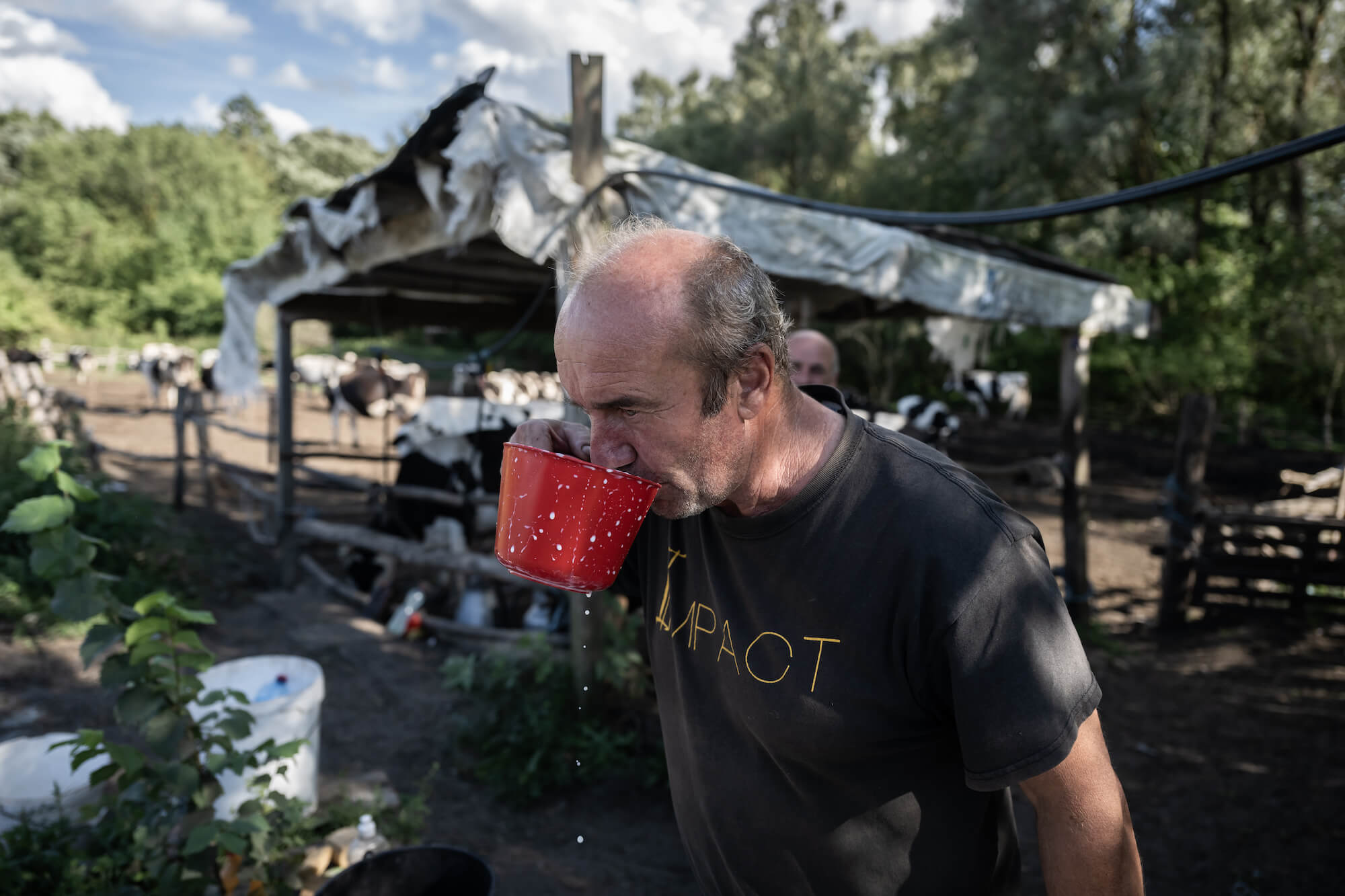
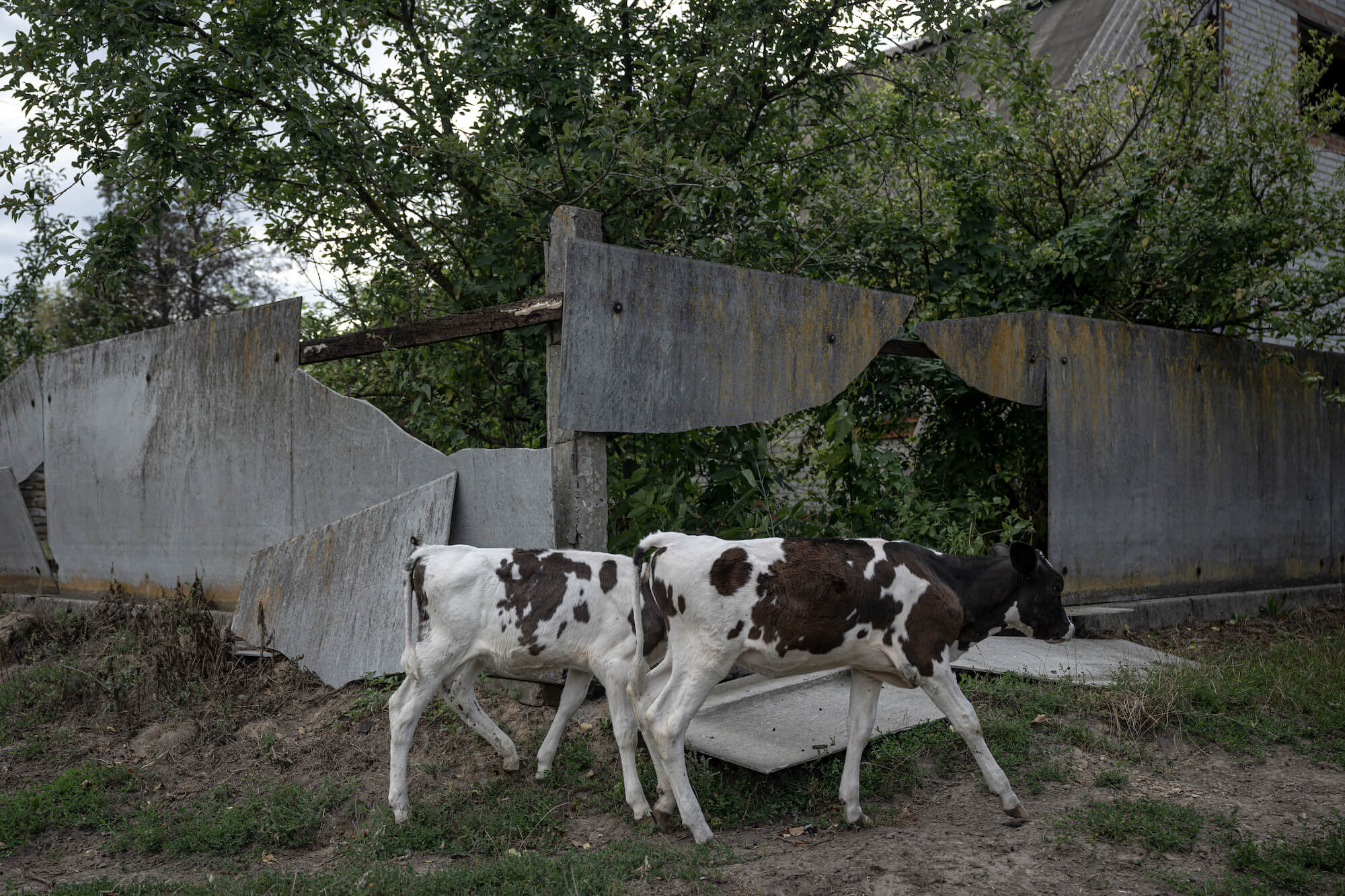
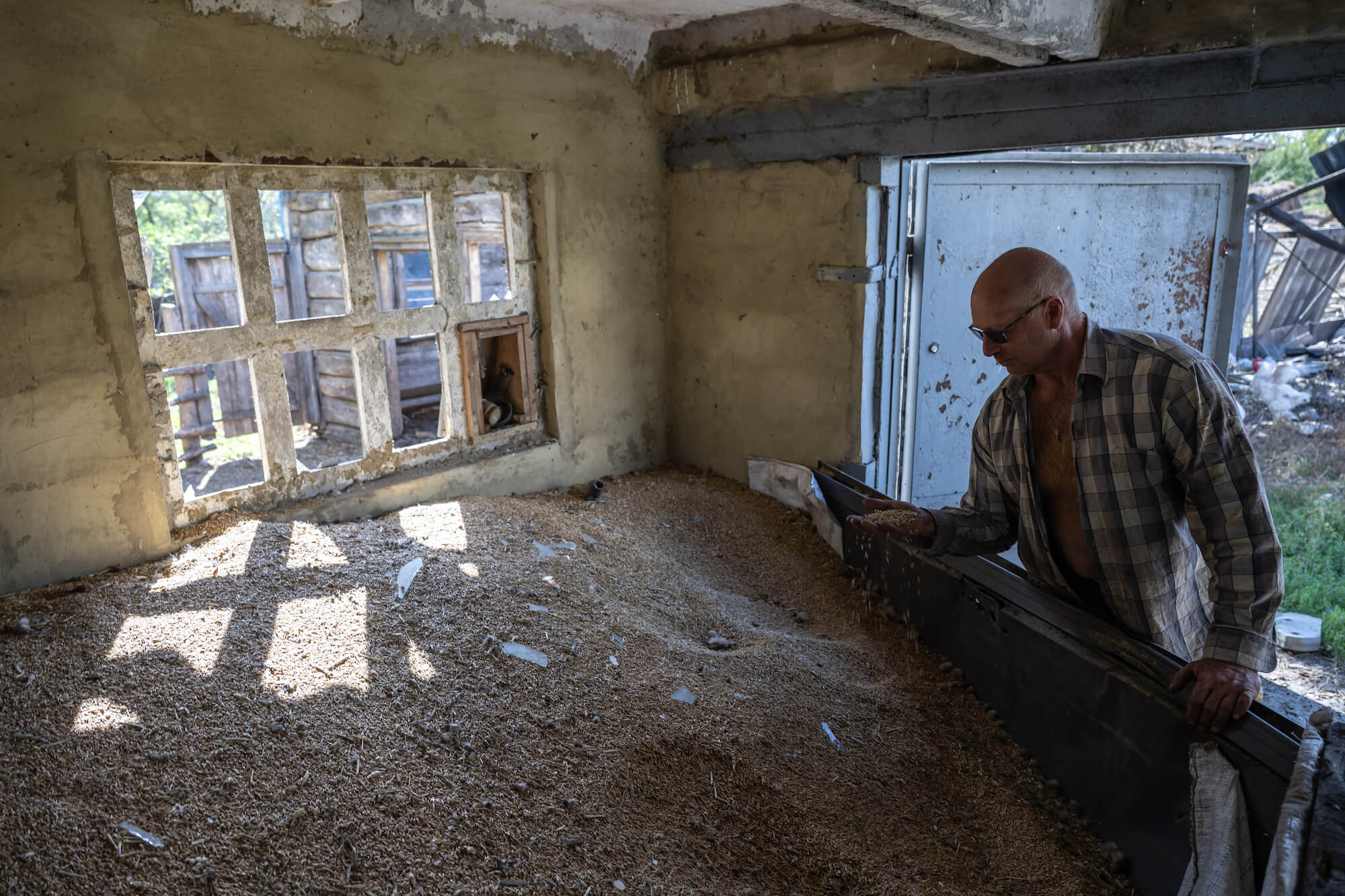
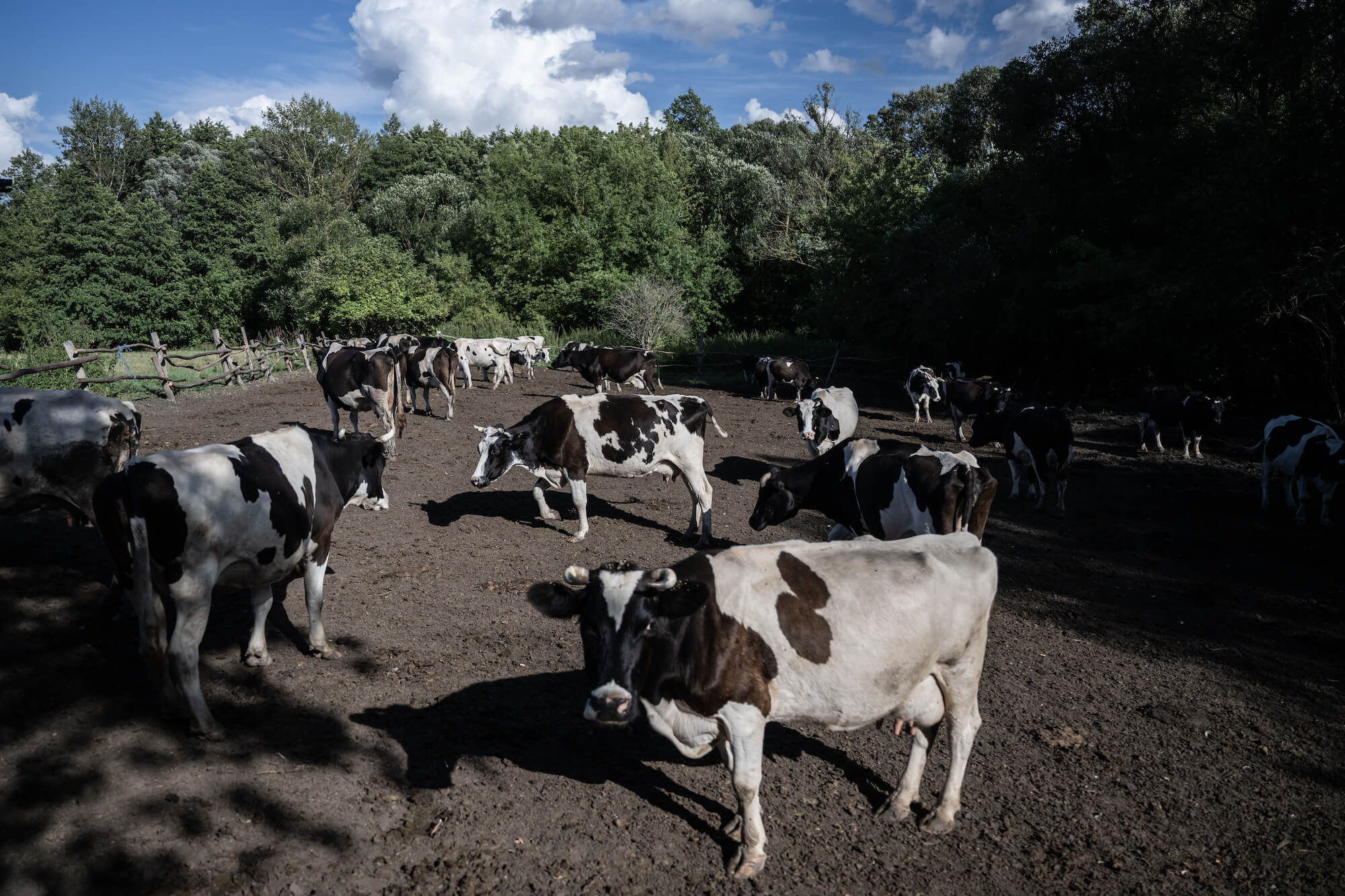
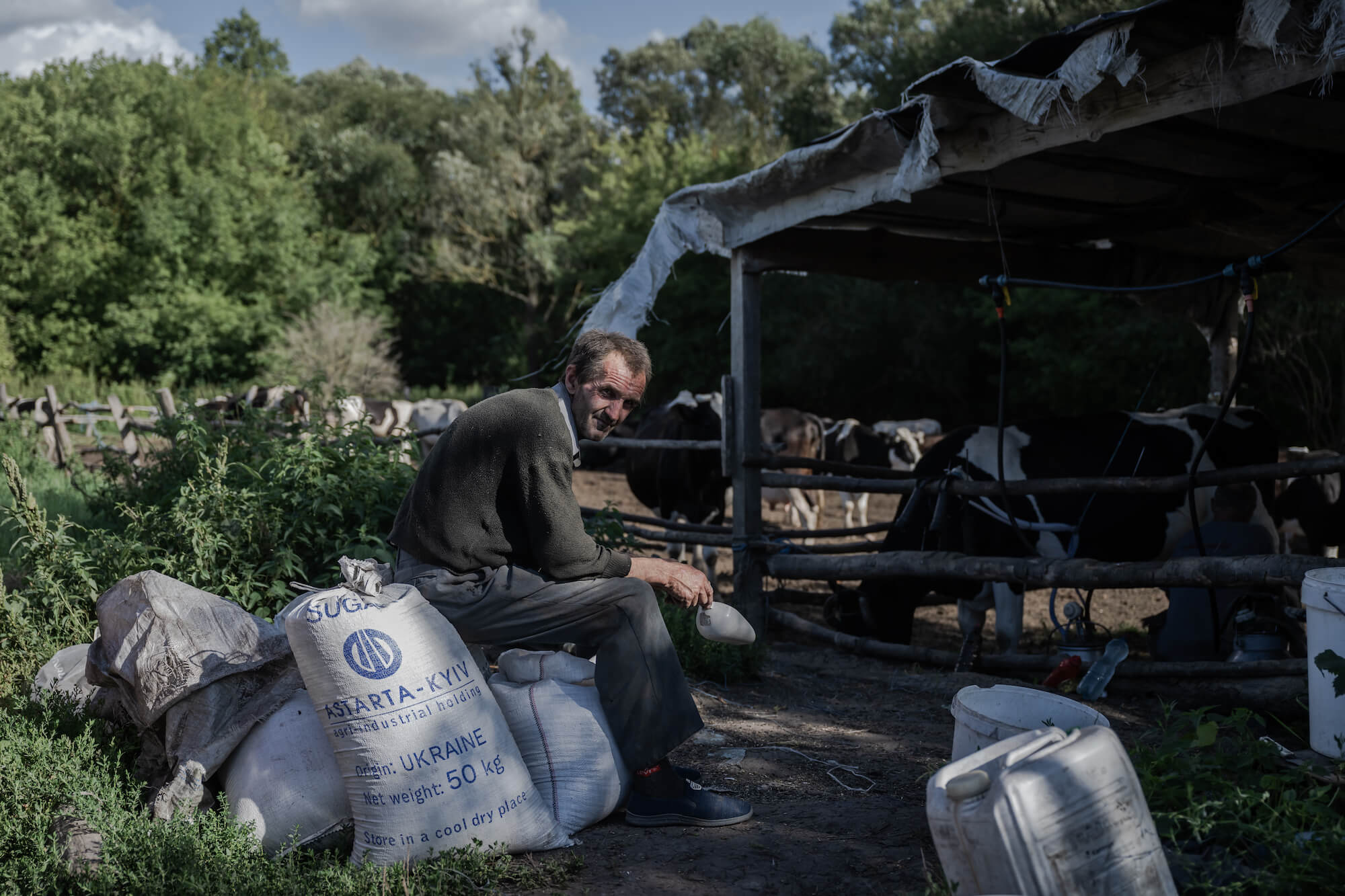
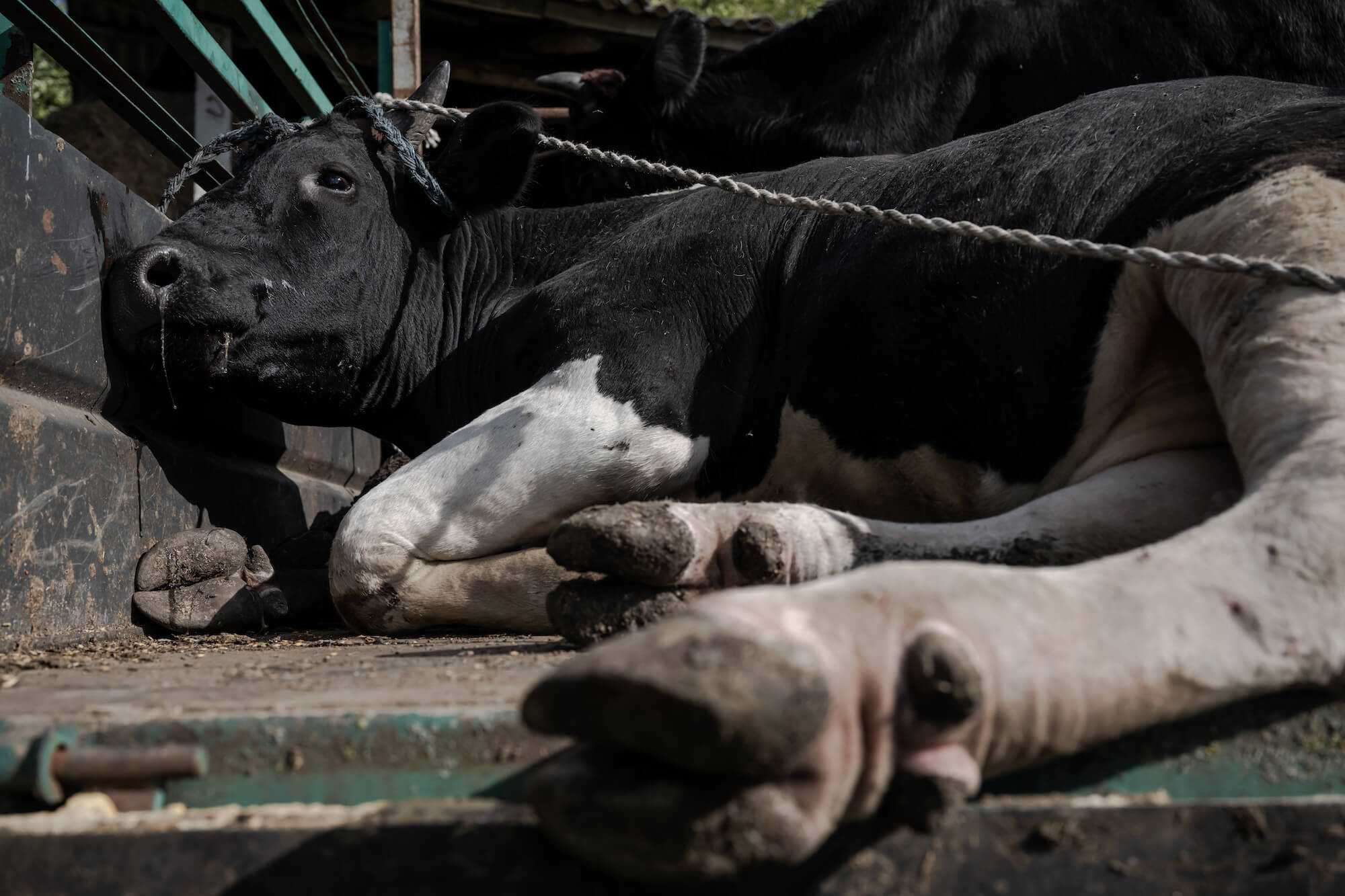
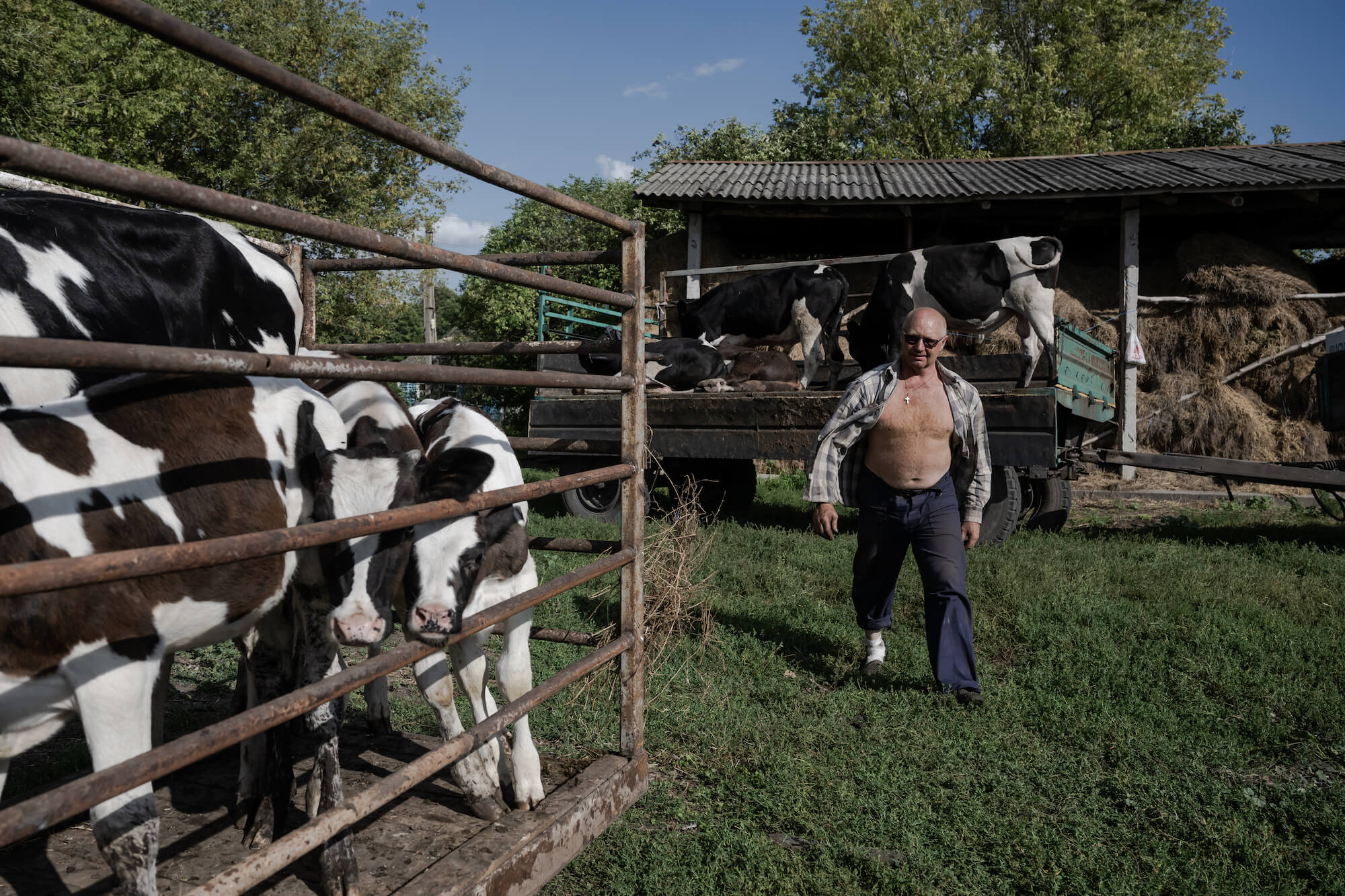
Translation — Daryna Tymkiv
Copy Editing — Jared Goyette
§§§
[The translation of this publication was compiled with the support of the European Union and the International Renaissance Foundation within the framework “European Renaissance of Ukraine” project. Its content is the exclusive responsibility of the authors and does not necessarily reflect the views of the European Union and the International Renaissance Foundation]
